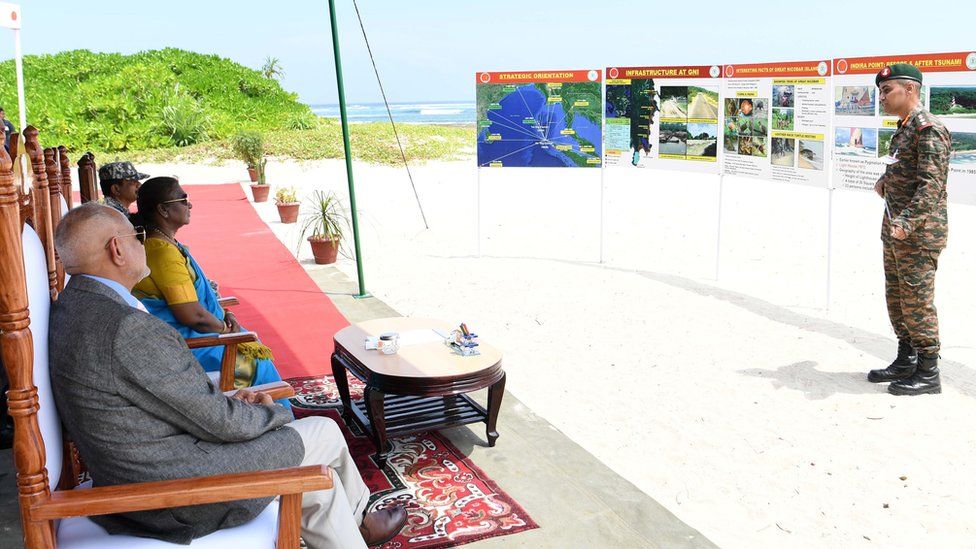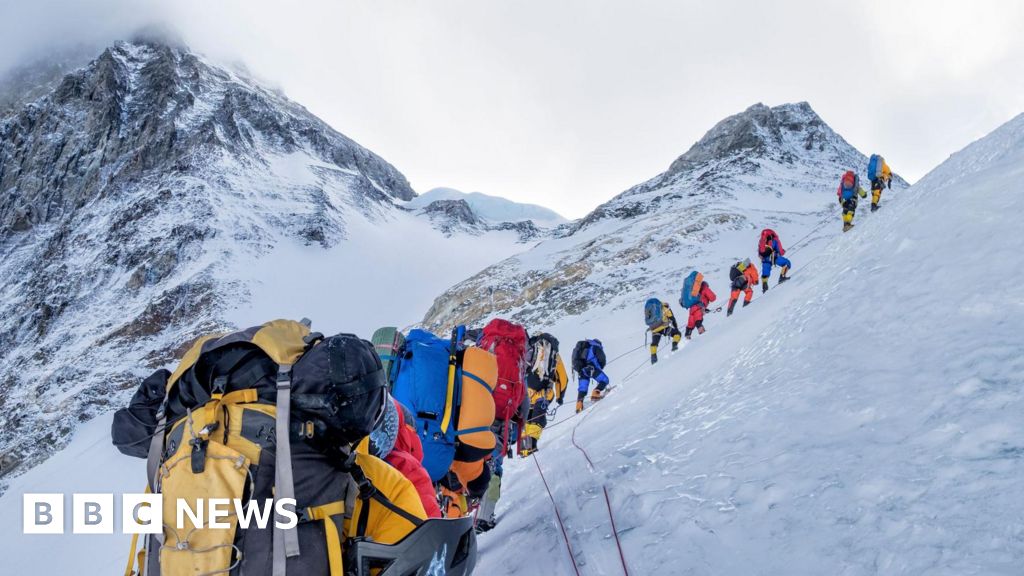ARTICLE AD BOX
 Image source, President of India/X
Image source, President of India/X
President Droupadi Murmu was shown a presentation on Great Nicobar's strategic importance
India's president has made a whistle stop tour of an island earmarked for multi-billion dollar development that experts warn could wipe out the indigenous tribe which calls it home.
Droupadi Murmu visited Great Nicobar on Tuesday - a remote island Indian officials hope will be transformed into a shipping hub and tourist destination.
The government says the plans will unleash the region's potential.
But experts say it would be a "death sentence" for the Shompen people.
In a letter sent to President Murmu earlier this month, 39 experts warned the scheme turning the southern part of Great Nicobar into the "Hong Kong of India" would result in the Shompen "fac[ing] genocide".
But while the letter made headlines around the world, there were fears it had failed to make the government reconsider its plans. Importantly, President Murmu is the head of the state, but does not exercise executive powers.
"If President Murmu's visit signals the government's determination to push through the Great Nicobar mega-project, it is a death knell for the indigenous Shompen people," warned Callum Russell, spokesperson from Survival International.
According to Survival International, the Shompen - who number between 100 and 400 people - are nomadic hunter gatherers who live in the island's rainforest. They are one of five "particularly vulnerable" tribes across the Nicobar and Andaman islands chain, but the only one on Great Nicobar.
Very few of the Shompen have ever had contact with the outside world, in part helped by the fact just another 8,000 people live on Great Nicobar, which is hundreds of kilometres east of India in the Indian Ocean.
Image source, Anthropological Survey of India
Image caption,The Shompen are hunter gatherers, so cover vast areas
However, the government's $9bn (£6bn) scheme envisages as many as 650,000 people will end up on the island after the town, shipping port, international airport and power plant are built.
The island's location, it argues, puts it in the perfect spot to take advantage of the international shipping trade - not to mention a good position to challenge China's growing influence in the region.
A promotional video shared by India's Ministry of Ports, Shipping and Waterways includes images of skyscrapers rising up behind the new port, as well as what appear to be large holiday developments.
The video says the shipping port and other parts will improve "quality of life for current and future residents of Great Nicobar".
But these new plans, Survival says, will not only eat into the lands the Shompen live and hunt in, but also increase the risk of contact with other people.
Image source, India Ports Ministry/X
Image caption,A still showing what the new scheme could look like
Any contact at all could destroy the tribe. In their letter, the experts, led by Dr Mark Levene, of the University of Southampton, warned that "simple contact... is certain to result in a precipitous population collapse" because the Shompen have "little to no immunity to infectious outside diseases".
And even if contact did not happen, the impact of the development on the group could result in a "collective psychic breakdown".
Even the government's own report acknowledges "any disturbance or alteration in the natural environmental setup where they live, may cause serious threat to their existence".
Despite these fears - and warnings from other groups over not only the Shompen, but also the potential damage the island's unique ecology - the government is expected to push ahead with the scheme later this year.
Mr Russell told the BBC they were continuing to call on the "deadly project" to be abandoned in order to save the Shompen.
"There is simply no way they will survive this catastrophic transformation of the island - the only home they have ever known. And the authorities have been clearly warned that this is the inevitable result," he told the BBC.
The BBC has contacted the Indian government for comment.

 11 months ago
18
11 months ago
18








 English (US) ·
English (US) ·